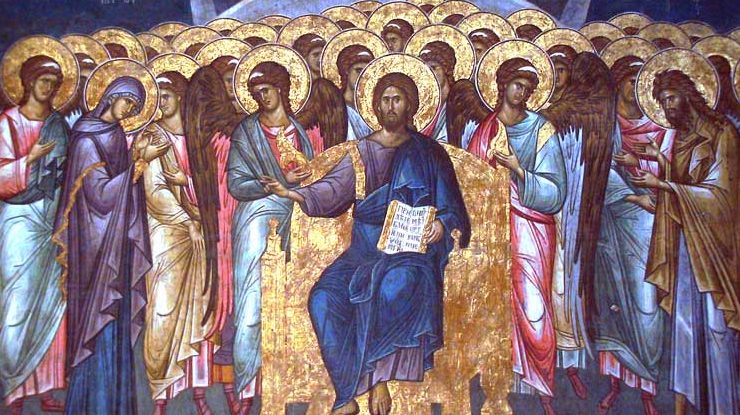The Bahá’í Faith is replete with profound insights into the nature of divinity and humanity’s potential for transformation. One of the central themes within this spiritual discourse is the concept of theosis, which can be understood as the process of becoming a reflection of God’s attributes. This transformative journey is not merely a philosophical ideal but a lived reality that enfolds the believer in a divine continuum, where the personal and the celestial coalesce.
To elucidate the essence of this concept, it is essential to explore its multifaceted dimensions, each serving as a stepping stone towards understanding the intricate relationship between the believer and the Divine.
1. The Nature of God in the Bahá’í Faith
At the core of Bahá’í teachings is the understanding of God as an incomprehensible, eternal, and unique being. This divine essence possesses attributes that are reflected in the Creation. Whereas God transcends all limitations, human beings, created in the “image and likeness” of the Divine, hold the capacity to mirror these attributes, albeit in a limited and partial manner. The divine attributes encompass love, mercy, justice, and wisdom, each serving as a guiding principle for personal development.
The metaphor of the sun and its rays illustrates this concept beautifully. Just as the sun radiates light that illuminates and nurtures, so too does God bestow His attributes upon humanity. Individuals, as reflections of divine light, have the potential to illuminate the world through their actions and virtues.
2. The Process of Theosis: A Journey of Transformation
The journey towards theosis is both gradual and exigent. It begins with the acknowledgment of one’s inherent nobility and potential. In a Bahá’í context, this realization is underscored by the belief that every individual is created with the capacity to attain a proximity to God, forging a pathway towards their highest selves. This journey unfolds through mindful dedication to personal and collective spiritual practices.
Prayer and meditation are foundational practices that facilitate this development. Engaging in these acts fosters a connection with the Divine, creating a fertile ground for the cultivation of virtues. As individuals immerse themselves in the invocations of God, they not only express their adoration but also invite the transformative power of divine attributes into their lives.
3. The Role of Community in Facilitating Theosis
A unique aspect of the Bahá’í Faith is its emphasis on the collective journey towards divinity. The community plays an instrumental role in fostering an environment conducive to individual spiritual growth. Through collaborative efforts and unity, Bahá’ís strive to embody divine attributes as a collective entity, thus outwardly manifesting the essence of theos.
In communal efforts, individuals learn from one another, draw inspiration, and support each other on their respective paths. The portrayal of the human community as a garden implies that, like a diverse ecosystem, each member contributes uniquely to the collective tapestry. Nurturing this diversity, while remaining unified in purpose, reflects the attributes of love and compassion that are so fundamental to the Divine.
4. The Spiritual and Ethical Dimensions of Reflecting Divine Attributes
As Bahá’ís embark on the quest for theosis, ethical considerations emerge as paramount. The yearning to reflect divine attributes encompasses not only self-improvement but also a commitment to service and justice. The ethical dimension transcends personal development, extending its reach to society at large.
Practices such as engaging in acts of kindness, upholding justice, and promoting the well-being of others serve as integral avenues through which believers can reflect the divine attributes of mercy and justice. This encourages a symbiotic relationship between personal virtues and social responsibility, emphasizing the holistic nature of spiritual growth.
5. Challenges on the Path to Theosis
The pursuit of becoming a reflection of God’s attributes is fraught with challenges. Human imperfections, societal dissonances, and internal conflicts can obscure this noble aspiration. The Bahá’í perspective teaches that facing adversities is an essential part of spiritual growth; these challenges can act as crucibles in which the soul is refined.
Through trials, individuals often discover the depths of their own resilience and capacity for compassion. The metaphor of the smithing process, where metal is heated and shaped, aptly captures this transformative experience—painful yet purifying, adversities can yield a more profound understanding of one’s own potential for reflecting divine attributes.
6. The Ultimate Goal: Unity with the Divine
In conclusion, the ultimate aim of the Bahá’í teachings on theosis is the realization of unity with the Divine. Attaining this unity breathes life into the abstract concepts of faith, transforming them into actionable ideals. It leads to the manifestation of love, mercy, and justice in the world, establishing a beacon of hope and illumination amidst adversity.
This journey towards becoming a reflection of God’s attributes is not merely an individualistic endeavor but a shared responsibility within the community. Thus, the Bahá’í quest for theosis becomes a beautiful symphony, where each note contributes to a harmonious whole, resonating with the divine. Embracing this path fosters a transformative experience, allowing individuals to illuminate not only their own lives but also the lives of others, creating a rippling effect of divine light in the universe.
